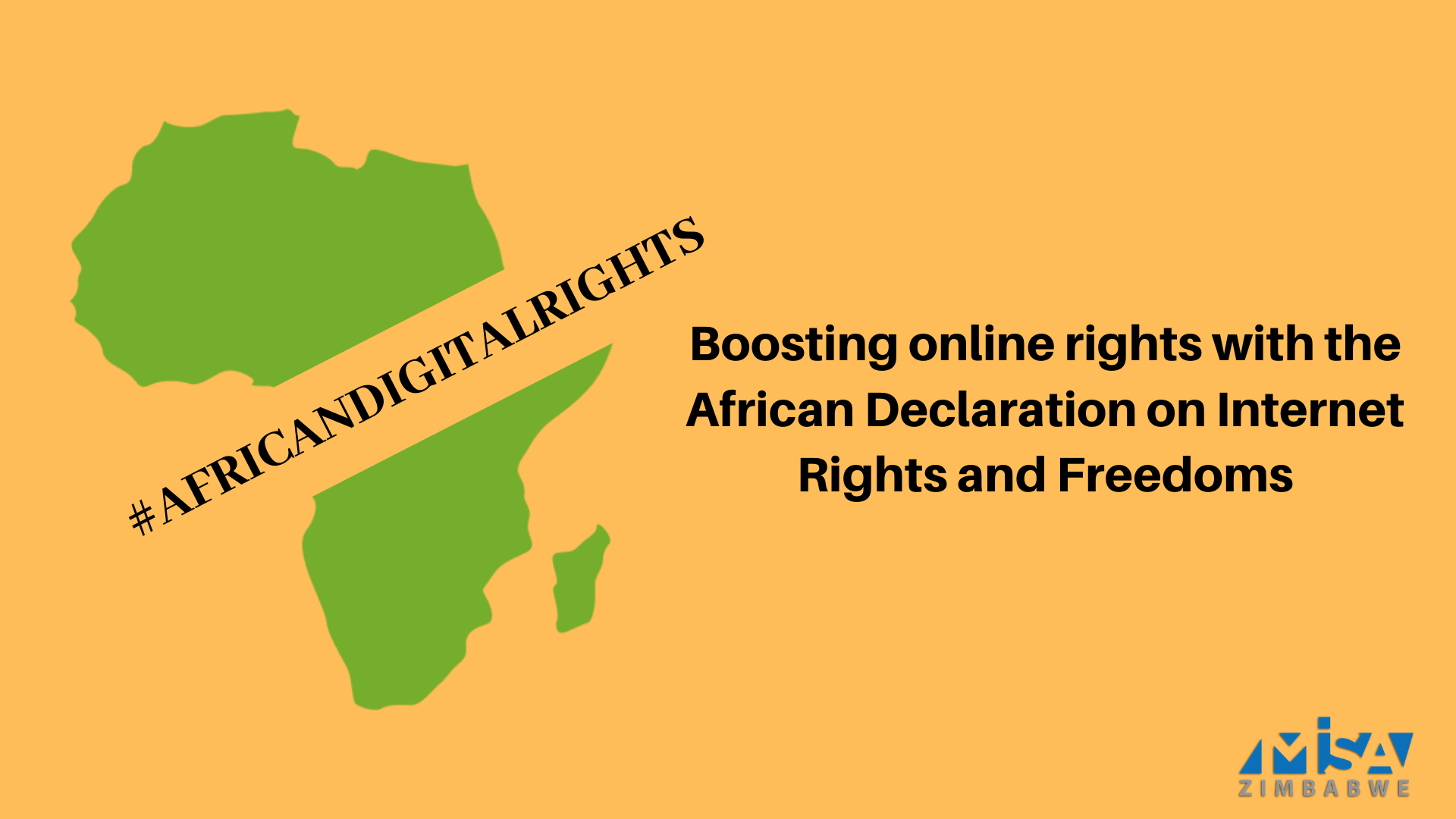The pan-African initiative seeks to improve human rights online as well as Internet openness and access.
At a recent Internet Governance Conference held in Harare, MISA Zimbabwe promoted the African Declaration on Internet Rights and Freedoms (AfDec) as a tool to promote freedoms in the digital space.
The Declaration intends to outline “the principles which are necessary to uphold human and people’s rights on the Internet, and to cultivate an Internet environment that can best meet Africa’s social and economic development needs and goals.”
It builds on seminal African human rights instruments such as the African Charter on Human and Peoples’ Rights (ACHPR), the Windhoek Declaration on Promoting an Independent and Pluralistic African Press, the African Charter on Broadcasting, the Declaration of Principles on Freedom of Expression in Africa, and the African Platform on Access to Information Declaration.
MISA Zimbabwe endorsed and joined AfDec in 2015 because both aim to achieve similar objectives around Internet freedoms.
During the 2019 Multi-stakeholder Internet Governance Conference, Izak Minnaar and Hlengiwe Dube discussed how AfDec can be used in the southern African region to support the specific rights of freedom of information and access to information.
Minnaar referred to the obligations of African Union member States under ACHPR Resolution 362 of 2016 to implement “legislative and other measures to guarantee, respect and protect citizens’ right to freedom of information and expression through access to Internet services” in line with the Commission’s resolution on the Right to Freedom of Information and Expression on the Internet in Africa.
He also spoke about the role of ACHPR’s Declaration on Principles of Freedom of Expression and Access to Information. This is a soft law instrument meant to guide governments on how to promote the rights to freedom of expression and access to information in the age of Internet-based communications. Under Principle 37, States are encouraged to facilitate access to the Internet by:
Facilitating freedom of expression and access to information online and the means necessary to exercise these rights.
Recognising that universal, equitable, affordable and meaningful access to the internet is necessary for the realisation of freedom of expression, access to information and the exercise of other human rights.
Cooperating with all relevant stakeholders adopt laws, policies and other measures to provide universal, equitable, affordable and meaningful access to the internet without discrimination.
Dube analysed Zimbabwe’s Freedom of Information Bill against the access to information and free expression standards set out in AfDec and the revised ACHPR Declaration on Principles of Freedom of Expression and Access to Information.
She reminded conference participants to always remember that access to information legislation must address the needs of minorities such as people living with disabilities.
AfDec Co-ordinator, Koliwe Majama, who facilitated the session, also pointed out the need to involve ordinary people including sexual minorities in the Internet Governance dialogue as well as paying attention to their unique access to information and freedom of expression needs.
Membership to the AfDec Coalition is open to interested organisations and individuals. Interested parties may endorse the Declaration at this link.
//Ends









